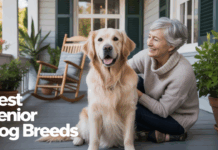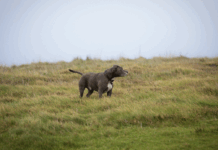Last Updated on August 23, 2024 by Dogs Vets
Dachshunds, like all dogs, require social interaction and care, but many pet owners wonder if they can leave their Dachshund alone while they manage daily tasks. The short answer is yes, but it’s essential to understand the limits. Dachshunds can be left alone for short periods, but how long is too long? In this guide, we’ll break down everything you need to know about leaving your Dachshund alone at home.
How Long Can You Leave a Dachshund Alone?
According to guidelines from Dachshund Health UK, adult Dachshunds can be left alone for up to 4 hours. However, the American Kennel Club (AKC) suggests that adult dogs, in general, can handle being alone for 6 to 8 hours. The specific time limit can vary depending on your dog’s needs, so let’s explore the factors that influence this further.
- Puppies: Puppies have a lower tolerance for being alone. Typically, puppies under 6 months should not be left alone for more than 3 to 4 hours due to their developmental needs.
- Adults: Adult Dachshunds can manage alone time better but should ideally not be left for more than 4 to 6 hours.
- Senior Dogs: Older Dachshunds may require more frequent bathroom breaks, making 4 hours the maximum time they should be left alone.
Age Considerations for Leaving Dachshunds Alone
Age plays a significant role in determining how long a Dachshund can be left alone. Here’s a quick guide:
- Puppies (up to 6 months): Should not be left alone for more than 2 to 3 hours.
- Adult Dachshunds (1 to 7 years): Can handle 4 to 6 hours alone.
- Senior Dachshunds (8+ years): May need attention after 3 to 4 hours due to age-related needs.
Related Reference: American Kennel Club
Managing Health Issues When Leaving Your Dachshund Alone
If your Dachshund has health issues, the time they can be left alone may be limited. For example:
- Medication Needs: Dogs on medication may require timely doses, so leaving them alone for extended periods isn’t advisable.
- Recovery from Illness: If your Dachshund is recovering from surgery or illness, they may need regular check-ins.
In such cases, it’s best to arrange for a pet sitter or a neighbor to check on your dog. This ensures that their health needs are met while you’re away.
Related Reference: PetMD – Health Considerations for Dogs
Understanding and Preventing Separation Anxiety in Dachshunds
Dachshunds are affectionate and social, which makes them prone to separation anxiety. This condition occurs when dogs become anxious and stressed when left alone. Symptoms can include:
- Excessive barking or whining
- Destructive behavior (chewing furniture, etc.)
- Scratching at doors and windows
- Pacing or restlessness
To prevent separation anxiety, start by gradually increasing the time your Dachshund spends alone. Begin with short intervals and slowly work your way up to longer periods. Positive reinforcement with treats and toys can help create a positive association with alone time.
Tips to Help Your Dachshund Cope with Alone Time
To ensure your Dachshund is comfortable and happy when alone:
- Provide Mental Stimulation: Offer toys that challenge their mind, such as puzzle toys or treat-dispensing toys.
- Comfortable Environment: Ensure they have a cozy bed, access to water, and a few of their favorite toys.
- Background Noise: Leaving a radio or TV on can provide comfort, making them feel less lonely.
- Consistent Routine: Dogs thrive on routine. Ensure you follow a consistent schedule for leaving and returning home.
When to Consider a Pet Sitter or Doggy Daycare
If you’re away from home for extended periods, it might be worth considering hiring a pet sitter or enrolling your Dachshund in doggy daycare. This option provides socialization and care for your pet, ensuring their needs are met even when you’re not around.
Related Reference: Doggy Daycare Benefits
Final Thoughts: Ensuring Your Dachshund’s Well-Being When Left Alone
In summary, Dachshunds can be left alone for up to 4 to 6 hours, depending on their age and health. It’s crucial to provide them with a comfortable environment and mental stimulation during their alone time. If you have concerns about your Dachshund’s ability to handle alone time, consider professional help or a pet sitter.
Remember, your Dachshund’s well-being is the top priority. By following these guidelines, you can ensure that your furry friend stays happy and healthy even when you’re not at home.























